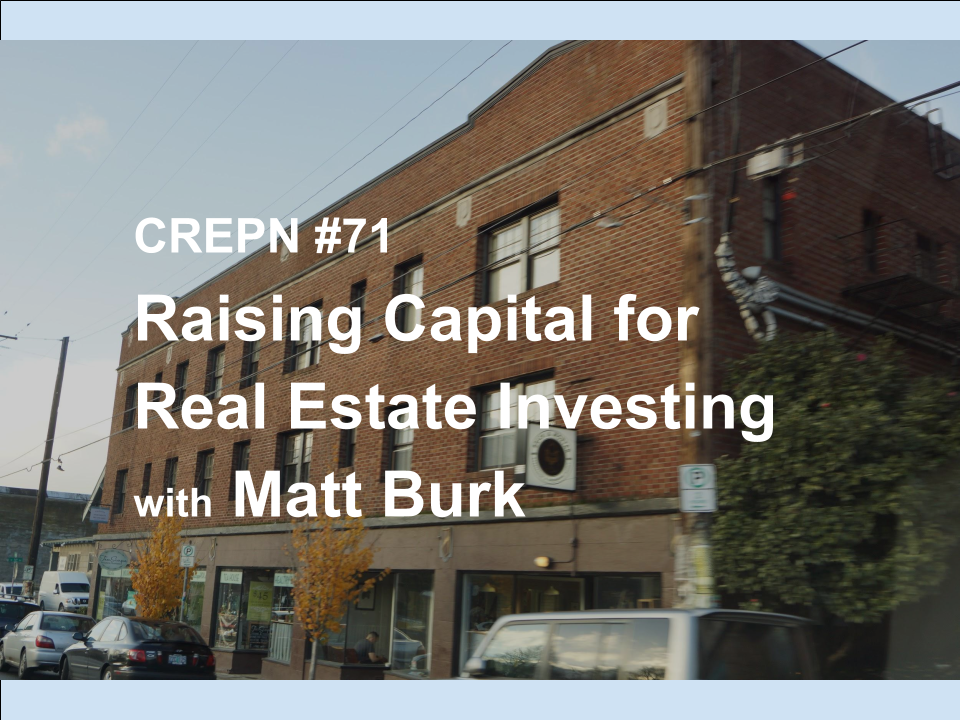
16 Dec CREPN #71 – Raising Capital for Real Estate Investing with Matt Burk
Real estate investing requires lots of capital. For the ambitious real estate investor with the know how to find deals, raising capital can still be a challenge. If you don’t have capital, where can you get it? Family, and friends can only get you so far. If you have the ability to do a lot of deals, and the only thing holding you back is capital, you might be a candidate for running a real estate investment fund. [x_audio_embed][/x_audio_embed] Matt Burk, CEO of Fairway America, LLC and SBREfunds.com, works with all types of real estate investors to raise capital and manage funds. Real estate investors are experts in finding and recognizing opportunities where others don’t. These same people regularly lack the capital to make the deals happen. On the flip side, there are people with cash looking for a return greater than what the banks will provide. These people can be an excellent source for capital for the real estate investor.
One deal at a time
If a real estate investor has an opportunity but not enough capital to get it done, bringing in partners can be a solution. Real estate deals that have partners or are syndicated are tied to a specific property. Capital partners can decide if they like the characteristics of the deal. There are many specific measurable data points; area population, demographics, employment prospects, average income, demand for the type of property, and any value add plans to name a few. The terms are identified up front on how each party will be compensated during and once the property is sold. This works great when the flow of opportunities and the availability of funding is unlimited. However, if there are more opportunities than funding, an investor may consider creating a real estate investment fund to raise capital.The challenges of a fund
506 Regulation D plans have no specific reporting requirements. These are private investment funds. A fund is not tied to a specific property. The capital investor gives funds to the fund manager based on a belief in the fund managers plan and the faith that the fund manager will perform as outlined. The capital investor has no input on what the fund manager invest in. This is a huge difference from investing in specific properties. The fund manager has the weight of responsibility placed on him by the willing capital investors. The challenge is too great for many fund managers. When deal flow is low, and capital investors are asking for results, a fund manager with less discipline than required, and a desire to please capital investors can get into trouble. If they stray from the principles that made them successful, it can be a recipe for disaster. Traits of a successful fund manager- Disciplined; when times are tough, a disciplined fund manager recognizes that money in hand is better than making a bad deal
- Proven track record; the results speak for themselves
- Communication; regular communication with investors that provides accurate and detailed information is a must.
- Surrounded by a team; fund managing requires many different talents. It requires a team of experts.

